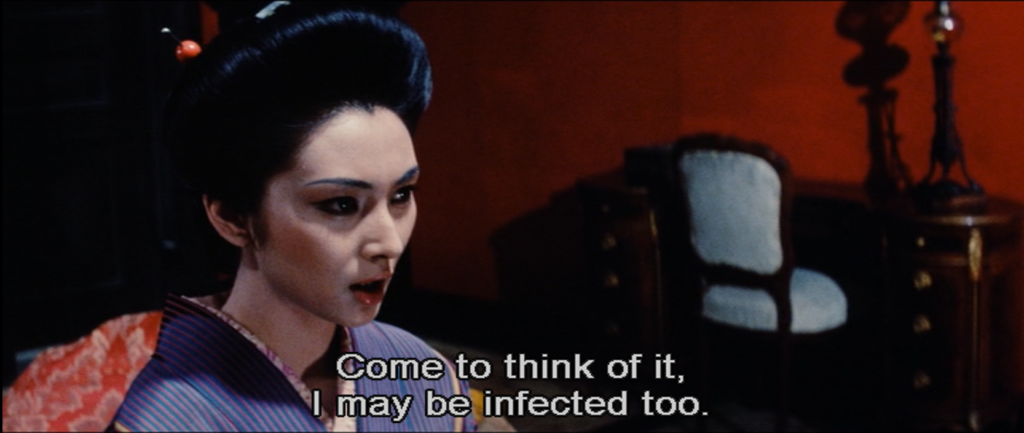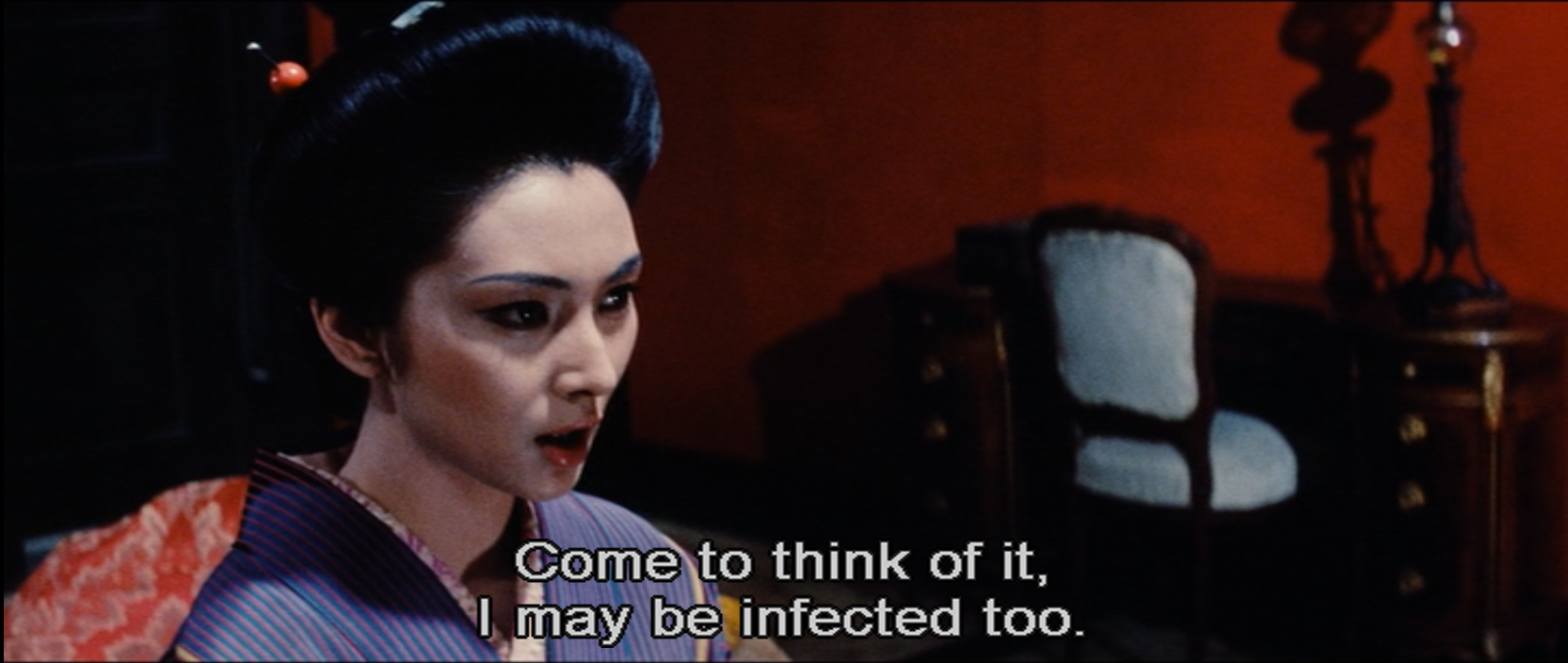Movie Review: Lady Snowblood 2: Love Song of Vengeance (1974) directed by Toshiya Fujita
So, it turns out Yuki (Meiko Kaiji) survived the ending of the previous film, much to her own surprise. Problem is, people remember she did all that murder beforehand as Lady Snowblood. We pick up several years later after the end of the 1905 Russo-Japanese War. Random attackers accost Yuki at her family graveyard. No explanation is given, but most likely they’re avenging some mob boss she took out. Yuki doesn’t bother asking questions before killing them in self-defense.

The police are a more serious threat. Yuki manages to escape, but is clearly exhausted from constantly being on the run, and when she’s accidentally injured by a hunter’s trap, this weakens her enough to finally surrender. The court convicts her of the 37 murders they can definitely prove she did, and Yuki is sentenced to death by hanging. As a bit of cruel poetry, she’s held in the very women’s prison she was born in.
On the way to the gallows, Yuki is “rescued” by masked riders. They, including the mute Toad (Koji Nanbara) word for secret police leader Seishiro Kikui (Shin Kishida). He wants Yuki to resume being Lady Snowblood in exchange for not being executed. Her mission is to infiltrate the household of anarchist Ransui Tokunaga (Juzo Itami), recover a certain secret document, then assassinate him. Ransui’s wife Aya (Kazuko Yoshiyuki) is “frail” and needs a maid, so Yuki is able to get a job.
Ransui is not stupid, and figures out quickly who Yuki is and why she’s there. He reveals that the document in question is evidence that Kikui and his boss Justice Minister Terauchi Kendo (Toru Abe) framed an anarchist group for a treasonous bomb plot as justification for executing them. If Ransui can get this document to the press, it will cause a government shakeup, and he wants to time this release to cause maximum public unrest. Lady Snowblood has all the loyalty to Kikui and the government you’d expect from a vengeful assassin who’s not getting paid so doesn’t kill him and take the document.
When Ransui is arrested on the charge of harboring a fugitive (he’s technically guilty, even if the government inflicted that fugitive on him in the first place), he asks Yuki to take the document to his estranged brother Shusuke (Yoshio Harada), a doctor in the slums. Shusuke, a veteran of the recent war, has reason to be upset with Ransui and Aya, and doesn’t share their politics. His plans for the document are very different.
Not that the government cares; the corrupt officials want the evidence destroyed by any means necessary, along with anyone who’s seen it. And hey, Lady Snowblood is already supposed to be dead.
This sequel to the first Lady Snowblood film which I reviewed earlier takes almost nothing from the manga. Yuki’s primary motivation plot arc was finished, so she needs a new reason to be killing people. This makes the movie a bit weaker, and it’s not surprising that the series ended here.
Instead of personal revenge, this movie concentrates on politics in late Meiji Era Japan. The country is not as tightly controlled as the government officials would like, with a reasonably free press, but the secret police otherwise operate with impunity. The slums are full of miserable poverty while the rich enjoy great luxury. The government makes a big show of honoring its war dead but does nothing for its living veterans.
Notably, at the beginning of the movie the regular police could be considered to just be doing their duty (Lady Snowblood is in actual fact a criminal) but we soon see that they’re working hand in glove with the secret police, torturing suspects and covering up for Kikui. It’s a metaphor that Inspector Maruyama (Rin’ichi Yamamoto) winds up blinded.
It’s not that the anarchists are good people; Ransui did an inexcusable thing to his brother, and his plan would result in massive property damage, physical injury and possible death. They just had not been guilty of the crime the government executed them for.
There’s good use of color (the blood is unnaturally red) and the violence is stylish, with overall good direction and acting. And Meiko Kaiji is still perfect for the role.
Content note: lots of violence, often gory, with more than one mutilation. People are disfigured by disease. Male and female nudity and an onscreen sex scene (no genitals). Torture. Toad’s muteness is framed as making him extra creepy.
Overall: Suffers from sequelitis but still very watchable; if you liked the first this one is also good.

